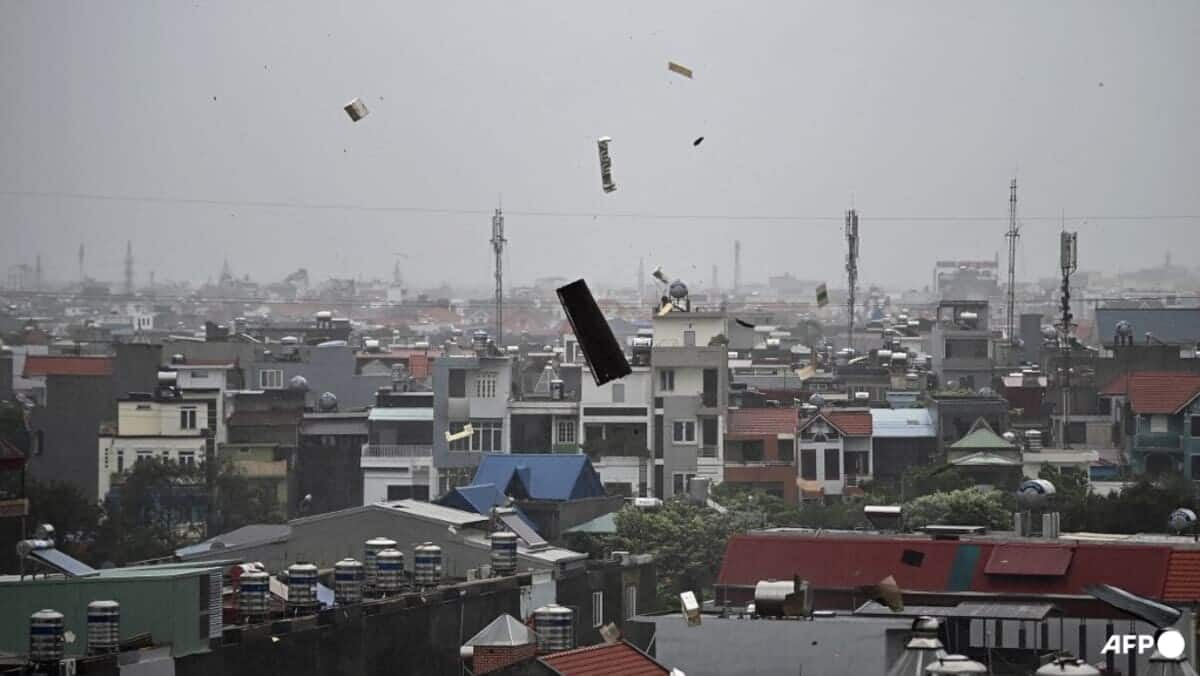
Super typhoon Yagi hits Vietnam after killing 2 in China
What's the story
Super Typhoon Yagi has made landfall in northern Vietnam on Saturday. The storm's impact was felt strongly in Hai Phong and Quang Ninh provinces, where it uprooted thousands of trees and swept ships out to sea. According to state media reports, the typhoon, which was Asia's most powerful storm this year, also caused metal roof sheets and commercial sign boards to fly across city skies.
Evacuation
Nearly 50,000 people evacuated
Vietnam has evacuated nearly 50,000 people from coastal towns and mobilized 450,000 military personnel, according to the authorities. It also halted operations for several hours at four airports on Saturday, including Hanoi's Noi Bai, the busiest in the north, canceling almost 300 flights. High schools were also closed in 12 northern provinces, including the capital, Hanoi.
Aftermath
Yagi leaves trail of destruction in China
Before hitting Vietnam, Yagi had left a trail of destruction in southern China's Hainan island. The typhoon claimed at least two lives and injured 92 others there. Chinese state broadcaster CCTV reported that Yagi brought winds of more than 230km/h, uprooting trees and prompting the evacuation of around 460,000 people. Tran Thi Hoa, a 48-year-old woman from Hai Phong, told AFP, "It has been years since I witnessed a typhoon this big. I stayed indoors, after locking all my windows."
Twitter Post
Woman blown away due to strong winds
SUPER TYPHOON ALERT: YAGI INTENSIFIES
— BeeLady 🇨🇭 📍🌼🐝 (@BeeLady__) September 6, 2024
Super Typhoon #YAGI Heads Towards Northern #Vietnam#SuperTyphoonYagi #NorthernVietnam pic.twitter.com/iAsYzeoqL6
Wider impact
Yagi's wrath extends to Philippines, climate change blamed
Earlier this week, Yagi killed at least 13 people in the Philippines when it was still classified as a tropical storm. It later strengthened into a super typhoon over the next few days. A study published in July suggests that typhoons in the region are now forming closer to the coast, intensifying more rapidly, and staying over land for longer due to climate change.